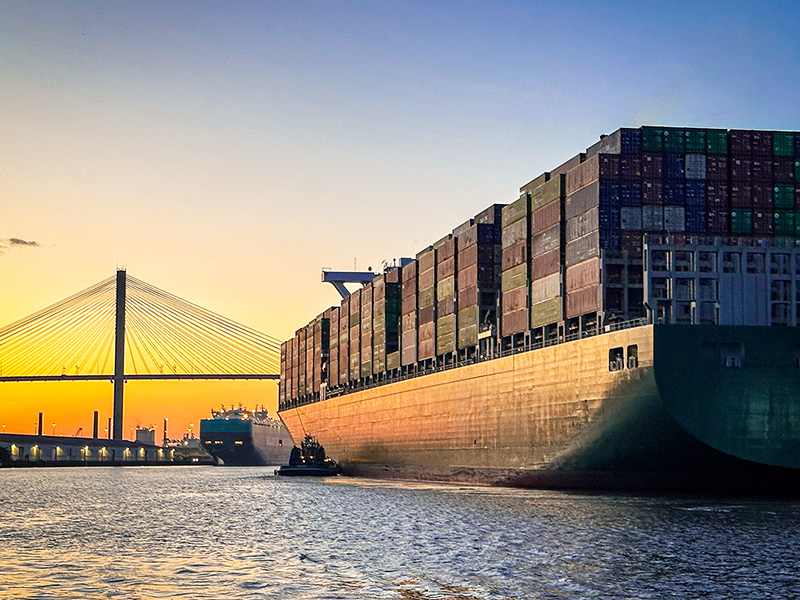
Climate Week and the United Nations General Assembly gathering in New York City—typically a time of optimism and promising announcements from a community of people committed to putting the world on a path to justice and sustainability—arrive in 2024 with a decidedly turbulent backdrop.
Unfortunately, this year is no time for optimism. Rather, it’s a moment of reckoning, a time to recommit to progress, and an opportunity to regain ownership of the narrative about why sustainability is the best and indeed only path forward. And, crucially, it’s time to sit down and have the hard conversations about the lack of progress from even the most committed companies.
To start, let us acknowledge that business action is achieving some impact. New technologies, partnerships, investments, and commitments are making a real difference, and we need more of it.
The problem is, this doesn’t make enough of a difference, and as Climate Week looms, there are reasons for concern in the global effort to mitigate and address the impacts of climate change.
Progress, and change, are hard! Many companies have learned that achieving their 2030 climate goals is challenging, with a changing economy, growth that brings higher emissions, complex supply chains that make Scope 3 emissions reductions difficult, and policy uncertainties and inconsistencies. Even where intentions are clear and strong, progress is falling short.
Political opposition to achieving a more sustainable economy, often well-funded but ill-considered, if not outright dishonest, is having an impact. The recent news that a new US$1 billion fund is being dedicated to reversing business efforts on climate, diversity, and other issues is just the latest example. Many companies concede privately—and some publicly—that they are walking back prior commitments in the face of these challenges.
The new regulatory environment has produced a level of caution inside business that is, overall, inconsistent with the purpose of the new compliance requirements. Companies are spending too much time focused on verifying past performance to address reporting rules, as opposed to investing in a more sustainable future.
And, many business leaders never bought in fully to the rising tide of action on climate, equity, and purpose, and they have gladly taken the off-ramp from a sustainable future at the first sign of economic, political, or other challenges.
But here’s the thing: we do not have the luxury of slowing down.
I’ve never been one to think that shouting louder and more often about the importance of just and sustainable business achieves very much.
But I do believe that speaking more honestly, and addressing the real barriers, in a real way, is precisely what we need.
Al Gore changed the way we think about climate change with his seminal movie, An Inconvenient Truth. That movie premiered almost two decades ago, in 2006. The original inconvenient truth truly catalyzed a new way of thinking about the existential stakes of climate change.
Today, there is a new set of inconvenient truths—not only on climate, but also on human rights, nature, equity, and the foundational question of democracy and rule of law—that must be understood and addressed if we are to successfully act to make good on the myriad promises and targets.
First, the underlying conditions prompting attention to climate, biodiversity loss, and diversity are accelerating, not declining. The planet is heating, species are in decline, and we are breaching planetary boundaries. On diversity, Western societies are growing more diverse, every minute of every day. If it is true that we are creating societal, economic, and environmental risk through unchecked climate change and nature loss, and in a more positive way, seeing our societies grow ever more diverse, it is only rational to respond with heightened business attention to the profound changes: denial is not a winning strategy.
Second, faith in markets and global trade has plummeted and is driven by the fact that for many, they represent risk and vulnerability, not human progress. This dynamic is reinforced by the pace of technological change: advances that delight us also create fear of human displacement. If the average person cannot see themselves thriving in the future—and many don’t—then faith in markets and business will not be where it needs to be for either business or society to thrive. Business can ill afford to avoid this fact and should reckon with the reasons why rising generations demonstrate falling support for the market economy.
Third, and related, healthy societies require healthy governance, and the democratic decline is real, global, and spreading. Businesses cannot assume that they will be able to operate successfully, fairly, or freely in a world where civic space is closing, where rule of law is applied unevenly, and where political divisions fester and grow. Business walks away from civic engagement at its peril—and ours.
Finally, it is also true that “greening” our existing models won’t get the job done in the face of the reality that unbridled growth and resource consumption simply be sustained. This means the inconvenient truth that existing models are not—literally—sustainable. In the best case, it means that the opportunity for innovation, delivering value in new ways, is greater than ever.
The solution here is not simply to care more, say more, or necessarily spend more.
These inconvenient truths mean that companies have both a responsibility, and an opportunity, to face the fact that the very foundations on which they rely—societies based on strong institutions, broad-based faith in the future, and resilient business and economic models—exist, but are under significant duress. No company can thrive if these framework conditions fail.
At this year’s Climate Week, then, though there are many good things to champion and celebrate, we would be wise to avoid the temptation to embrace a false sense of progress. It’s critical that we approach this year’s NYC gatherings with a laser focus on the challenges, risks, and opportunities that lay before us.
This year, it behooves all of us to reappraise our approaches, to rededicate ourselves to making the change that is needed, to have confidence in the fundamental principles on which we’re basing our decisions, and to transcend the challenges ahead.
BSR’s latest sustainability insights and events straight to your inbox.
Topics
Let’s talk about how BSR can help you to transform your business and achieve your sustainability goals.








